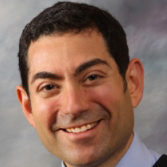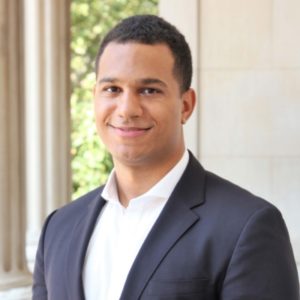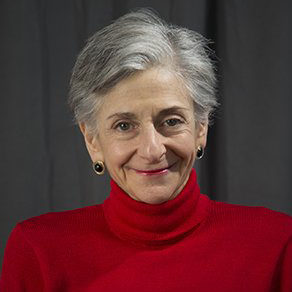 Legal Tech and the Future of Civil Justice
Legal Tech and the Future of Civil Justice
Legal Tech and the Future of Civil Justice
A four-session virtual event exploring how digital technologies are reshaping the civil justice system
February 10, 17, 24, & March 3, 2021 at 9:00am to 10:30am PST
Legal tech, most agree, is transforming litigation and law practice, and its steady advance has tapped a rich vein of anxiety about the future of the legal profession. Much of the resulting debate has a defensive quality in its focus on what legal tech portends for the professional authority, and profitability, of lawyers. Much of it is also profoundly futurist—full of references to “robolawyers” and “robojudges.”
Lost in this rush to foretell a distant, robotic future are an array of more concrete and more pressing concerns: What is the current state of legal tech and where can it plausibly go in the near- to medium-term? What effect will legal tech’s continued advance — from e-discovery to outcome prediction engines to virtual trials and proceedings — have on core features of our litigation system, and how should our procedural rules adapt in response? How can new digital technologies expand access to justice for low- and moderate-income individuals who often cannot retain counsel or lack the resources or know-how to engage formal legal institutions? And what aspects of judicial administration—particularly data infrastructure and accessibility—need to change in order to promote fair and responsible development of legal technologies and open the doors of justice wider for all? Debate around each of these questions, already heated, is quickening in light of the deep disruptions of the COVID-19 pandemic.
This four-session event is designed for judges, court administrators, rulemakers, legislators, academics, practitioners, and entrepreneurs who want to better understand the intersection of legal technology and civil justice and help navigate change in a post-COVID world.
Speakers:

John Armour
Oxford University Law Faculty

Ben Barton
University of Tennessee College of Law

Natalie Byrom
The Legal Education Foundation, Former Expert Advisor, Her Majesty’s Courts and Tribunal Service

Justice Mariano-Florentino Cuéllar
Supreme Court of California

Renee Danser
Harvard Law School, The Access to Justice Lab

David Freeman Engstrom
Stanford Law School

Nora Freeman Engstrom
Stanford Law School

Jens Frankenreiter
Columbia Law School

Jonah Gelbach
Berkeley Law

Myriam Gilles
Cardozo School of Law

Jim Greiner
Harvard Law School, The Access to Justice Lab

Judge Paul Grimm
United States District Court for the District of Maryland

Gillian Hadfield
University of Toronto Law Faculty, Schwartz Reisman Institute for Technology and Society

Margaret Hagan
Stanford Law School, The Legal Design Lab

Chief Justice Bridget M. McCormack
Michigan Supreme Court

Julian Nyarko
Stanford Law School

J.J. Prescott
University of Michigan Law School, Founder, Matterhorn

Victor D. Quintanilla
Maurer School of Law – Indiana

Chief Judge Lee Rosenthal
U.S. District Court, Southern District of Texas

Tanina Rostain
Georgetown University Law Center, The Justice Lab

Mari Sako
Saïd Business School, Oxford University

David Slayton
Office of Court Administration, State of Texas

Norman Spaulding
Stanford Law School

Albert Yoon
University of Toronto Law Faculty, Co-Founder, Blue J Legal
Session 1
Legal Tech and the Innovation Ecosystem
9:00am to 10:30am PST
Live Virtual Event
Free, open to all
- Julian Nyarko, Jens Frankenreiter
- Mari Sako, John Armour
- Ben Barton
- Commentary by: Justice Mariano-Florentino Cuéllar, Gillian Hadfield
This session will anchor the sessions to come by providing an overview of the state of “legal tech,” from e-discovery and technology-assisted review (TAR) to software that performs advanced legal analytics and outcome prediction, online dispute resolution (ODR) platforms that many courts have begun to deploy, and a growing catalog of digital tools that serve the unrepresented. Drawing together experts on machine learning, the organization of the legal services industry, and legal ethics and lawyer regulation, this session will provide a portrait of the current state of the art and legal tech’s likely trajectory over the near- to medium-term.
Session 2
Legal Tech, Procedure, and the Future of Adversarialism
9:00am to 10:30am PST
Live Virtual Event
Free, open to all
- Norman Spaulding
- Nora Freeman Engstrom, David Freeman Engstrom
- Jim Greiner, Renee Danser
- Commentary by: Judge Paul Grimm, Myriam Gilles
This session will consider the implications of the new tech tools for civil litigation and the adversarial system, particularly the ways civil procedure rules may need to adapt as legal tech continues its advance. We will consider, among other things, legal tech’s implications for due process and meaningful participation within the legal system; the promise and peril of the migration to remote proceedings, including virtual trials; and the ways continued advances in legal technologies will shift and perhaps even re-set several of the system’s procedural cornerstones, from proportionality in discovery to the work product doctrine.
Session 3
Legal Tech and Access to Justice
9:00am to 10:30am PST
Live Virtual Event
Free, open to all
- Margaret Hagan
- Chief Justice Bridget M. McCormack
- Victor D. Quintanilla
- J.J. Prescott
- Commentary by: Chief Judge Lee Rosenthal, David Slayton
This session will focus in on the distributive effects of new legal technologies within the civil justice system. If the 2008-2009 Great Recession is any guide, the economic fallout from the COVID-19 pandemic will trigger a spike in consumer credit and eviction cases, placing substantial pressure on state courts to innovate, including expanded use of virtual hearings, pre-hearing diversion programs, and court-ordered online dispute resolution processes. The coming surge will also bring to a boil an already-simmering debate about the high prevalence of pro se litigants within the system. All of these issues raise important questions about the degree to which the uptake of new legal technologies, and the rules governing their use, will widen or narrow the gap between litigation’s “haves” and its “have nots”—a core concern of anyone working within the civil justice field.
Session 4
Access to Data as Access to Justice
9:00am to 10:30am PST
Live Virtual Event
Free, open to all
- Tanina Rostain
- Jonah Gelbach
- Albert Yoon
- Commentary by: Natalie Byrom
This final session will focus in on a concern that is gaining momentum among civil justice experts: that relatively few actors within the legal system have privileged access to the data necessary to develop and refine effective legal tech tools. Put more concretely, high data costs and the failure of federal and state judicial administrators to make court data available in bulk means that large, corporate-facing tech companies and defense-side BigLaw firms—and typically not plaintiff-side firms, access-to-justice groups, or civil justice institutions—have the data and technical know-how necessary to make effective use of potent new analytics. This session will educate actors within the system—from judges to advisory committee members—about the challenges of access to court data and its uses and abuses and consider innovative new ways to expand access to court data while protecting privacy interests.
Made possible by Stanford Law School in conjunction with the American Association for Justice Robert L. Habush Endowment and Stanford Institute on Human-Centered AI.
